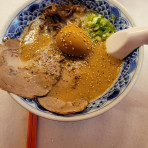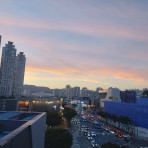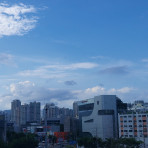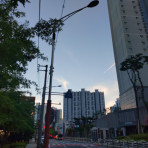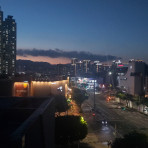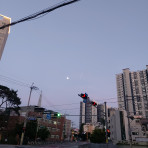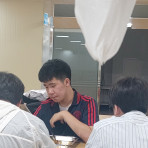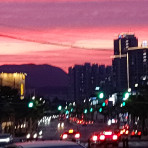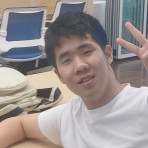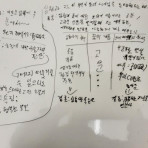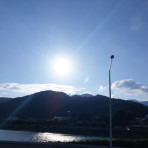Shanghai director set to face trial over 'white paper' protest film
본문
Fri, 23 Feb 2024 14:58:48 -0500

Shanghai authorities are moving ahead to prosecute a filmmaker who created a documentary about the nationwide ”white paper movement,” a series of protests against three years of rolling lockdowns and compulsory testing under China’s zero-COVID policy.
The 77-minute film titled "Urumqi Road" is compiled from on-the-ground footage of thousands of mostly young people who spilled out onto the streets of Shanghai and other major Chinese cities in late November 2022 to mourn the deaths of a Uyghur family in an apartment fire in Xinjiang's regional capital of Urumqi.
The tragedy served as a catalyst for the protests, which unleashed years of pent-up frustration and stress. Thousands called for an end to pandemic restrictions, and some even called for President Xi Jinping to resign.
Many held up blank sheets of paper to represent what they wished they could say but could not due to China’s censorship. In the film, some say that “what happened in Urumqi could have happened anywhere in China.”
Firefighters spray water on a fire at a residential building that killed several people in Urumqi in China's Xinjiang region on Nov. 24, 2022. (Image from video via AP)
The documentary – which carries the English title “Not the Foreign Forces” in reference to "hostile foreign forces" who are frequently blamed by Beijing for instigating protests – was uploaded to YouTube by at least one account in early December 2023, and credited to "Plato."
It garnered thousands of views, but less than a week after it appeared, Plato's Twitter account was deleted and his YouTube channel went private.
‘Catch-all crime’
RFA Cantonese has learned that Plato’s real name is Chen Pinlin, and that he was detained soon after the film was posted on suspicion of "picking quarrels and stirring up trouble," a charge frequently used to target peaceful critics of the government.
Chen, being held in Shanghai's Baoshan District Detention Center, was formally arrested for the same charge on Jan. 5, 2024. His case was transferred to the local prosecutor's office on Feb. 18, a person close to the case said.
A woman who helped Chen to produce the film has been released on bail, the person said.
A Chinese activist based in Germany who gave only the nickname Frank said the charge against Chen is a well-known "catch-all crime."
"The case of Chen Pinlin is evidence that the Chinese government continues to abuse the charge of 'picking quarrels and stirring up trouble' to infringe on artistic freedom and freedom of speech," Frank said. "Anyone who cares about social justice or who criticizes human rights violations gets harshly suppressed by the government."
"We call on the international community, particularly cultural and artistic creators around the world, to pay attention to Plato's situation," he said. "We can't turn a blind eye and just watch as these tragedies keep on happening."
‘We want freedom!’
According to the film's introduction, Chen was among the mostly young protesters who converged on Shanghai's Urumqi Road to protest the deaths of the Uyghur family on Nov. 26, 2022, and that the protest was the first time he had taken part in any kind of political event.
Intercut with footage of young people chanting, "We want freedom!" and "Xi Jinping step down!" Chen said the government's claim that the nationwide protests were the work of "foreign forces" was untrue.
Chinese police block access to a site where protesters had gathered in Shanghai, on Nov. 27, 2022. (AP)
He also called on people to continue to resist government propaganda and censorship, and remember not just the zero-COVID years, but also the 1989 Tiananmen massacre, the 1966-1976 Cultural Revolution and the 1958-1960 Great Famine of the Mao era.
"Remember the ugliness," Chen says in the film. "Only those with an optimistic outlook can hope that China will usher in brighter times soon."
A former “white paper” protester who gave only the nickname Rick for fear of reprisals said Beijing is trying to rewrite the history of the zero-COVID years, and that Chen and other protesters are trying to defend historical truth.
"The Chinese Communist Party won't let people talk about the White Paper movement, which is an attempt to modify the collective memory of the three years of zero-COVID among the Chinese people," Rick said.
"The documentary directed by Chen Pinlin is an attempt to break the Chinese Communist Party’s blockade of historical truth."
He said Chen had taken huge risks in making a film about popular protest in China.
"I admire director Chen Pinlin's courage and sense of social responsibility," Rick said. "Recording the historical truth is not a crime."
Shattered illusions
He said the zero-COVID restrictions had made young people in China realize that they could be deprived of even their most basic rights at any time, forced into starvation or death from illness in their own homes, or even burned to death in fires.
"Their illusions shattered, young people bravely went out onto the streets and shouted their protest," he said.
Many who took part in the movement were detained, while others have fled overseas, where they have continued their support for political change in China.
But even overseas activists are also being increasingly harassed by state security police, with some reporting threats to their families back home, as China pushes ahead with the "long-arm" enforcement of its laws overseas.
"[In] the summer of 2023, there was a wave of harassment targeting Chinese students living in the Washington area," former White Paper Movement protester and Georgetown law student Zhang Jinrui told a recent seminar on Beijing's transnational repression.
The Asian American Student Association seminar holds a seminar on China’s transnational repression, at Georgetown University on Feb. 21, 2024. (Kai Di/RFA)
He said some students had been detained for their activism after traveling back to China for the summer break, while others had been subjected to long-distance harassment and intimidation by the authorities.
"I think that's basically their main tactic with a lot of Chinese students, but a lot of the time more severe measures will also be taken,” Zhang said. “For example, threatening to confiscate your parents’ money.”
"It's a tactic to try to wear you down,” he said, “to try to harass your family more and more until they can't take it any more.”
Translated by Luisetta Mudie. Edited by Malcolm Foster.
Shanghai authorities are moving ahead to prosecute a filmmaker who created a documentary about the nationwide ”white paper movement,” a series of protests against three years of rolling lockdowns and compulsory testing under China’s zero-COVID policy.
The 77-minute film titled "Urumqi Road" is compiled from on-the-ground footage of thousands of mostly young people who spilled out onto the streets of Shanghai and other major Chinese cities in late November 2022 to mourn the deaths of a Uyghur family in an apartment fire in Xinjiang's regional capital of Urumqi.
The tragedy served as a catalyst for the protests, which unleashed years of pent-up frustration and stress. Thousands called for an end to pandemic restrictions, and some even called for President Xi Jinping to resign.
Many held up blank sheets of paper to represent what they wished they could say but could not due to China’s censorship. In the film, some say that “what happened in Urumqi could have happened anywhere in China.”
Firefighters spray water on a fire at a residential building that killed several people in Urumqi in China's Xinjiang region on Nov. 24, 2022. (Image from video via AP)
The documentary – which carries the English title “Not the Foreign Forces” in reference to "hostile foreign forces" who are frequently blamed by Beijing for instigating protests – was uploaded to YouTube by at least one account in early December 2023, and credited to "Plato."
It garnered thousands of views, but less than a week after it appeared, Plato's Twitter account was deleted and his YouTube channel went private.
‘Catch-all crime’
RFA Cantonese has learned that Plato’s real name is Chen Pinlin, and that he was detained soon after the film was posted on suspicion of "picking quarrels and stirring up trouble," a charge frequently used to target peaceful critics of the government.
Chen, being held in Shanghai's Baoshan District Detention Center, was formally arrested for the same charge on Jan. 5, 2024. His case was transferred to the local prosecutor's office on Feb. 18, a person close to the case said.
A woman who helped Chen to produce the film has been released on bail, the person said.
A Chinese activist based in Germany who gave only the nickname Frank said the charge against Chen is a well-known "catch-all crime."
"The case of Chen Pinlin is evidence that the Chinese government continues to abuse the charge of 'picking quarrels and stirring up trouble' to infringe on artistic freedom and freedom of speech," Frank said. "Anyone who cares about social justice or who criticizes human rights violations gets harshly suppressed by the government."
"We call on the international community, particularly cultural and artistic creators around the world, to pay attention to Plato's situation," he said. "We can't turn a blind eye and just watch as these tragedies keep on happening."
‘We want freedom!’
According to the film's introduction, Chen was among the mostly young protesters who converged on Shanghai's Urumqi Road to protest the deaths of the Uyghur family on Nov. 26, 2022, and that the protest was the first time he had taken part in any kind of political event.
Intercut with footage of young people chanting, "We want freedom!" and "Xi Jinping step down!" Chen said the government's claim that the nationwide protests were the work of "foreign forces" was untrue.
Chinese police block access to a site where protesters had gathered in Shanghai, on Nov. 27, 2022. (AP)
He also called on people to continue to resist government propaganda and censorship, and remember not just the zero-COVID years, but also the 1989 Tiananmen massacre, the 1966-1976 Cultural Revolution and the 1958-1960 Great Famine of the Mao era.
"Remember the ugliness," Chen says in the film. "Only those with an optimistic outlook can hope that China will usher in brighter times soon."
A former “white paper” protester who gave only the nickname Rick for fear of reprisals said Beijing is trying to rewrite the history of the zero-COVID years, and that Chen and other protesters are trying to defend historical truth.
"The Chinese Communist Party won't let people talk about the White Paper movement, which is an attempt to modify the collective memory of the three years of zero-COVID among the Chinese people," Rick said.
"The documentary directed by Chen Pinlin is an attempt to break the Chinese Communist Party’s blockade of historical truth."
He said Chen had taken huge risks in making a film about popular protest in China.
"I admire director Chen Pinlin's courage and sense of social responsibility," Rick said. "Recording the historical truth is not a crime."
Shattered illusions
He said the zero-COVID restrictions had made young people in China realize that they could be deprived of even their most basic rights at any time, forced into starvation or death from illness in their own homes, or even burned to death in fires.
"Their illusions shattered, young people bravely went out onto the streets and shouted their protest," he said.
Many who took part in the movement were detained, while others have fled overseas, where they have continued their support for political change in China.
But even overseas activists are also being increasingly harassed by state security police, with some reporting threats to their families back home, as China pushes ahead with the "long-arm" enforcement of its laws overseas.
"[In] the summer of 2023, there was a wave of harassment targeting Chinese students living in the Washington area," former White Paper Movement protester and Georgetown law student Zhang Jinrui told a recent seminar on Beijing's transnational repression.
The Asian American Student Association seminar holds a seminar on China’s transnational repression, at Georgetown University on Feb. 21, 2024. (Kai Di/RFA)
He said some students had been detained for their activism after traveling back to China for the summer break, while others had been subjected to long-distance harassment and intimidation by the authorities.
"I think that's basically their main tactic with a lot of Chinese students, but a lot of the time more severe measures will also be taken,” Zhang said. “For example, threatening to confiscate your parents’ money.”
"It's a tactic to try to wear you down,” he said, “to try to harass your family more and more until they can't take it any more.”
Translated by Luisetta Mudie. Edited by Malcolm Foster.
자유아시아방송 제공 및 저작권 소유 | RFA provided and copyrighted -www.rfa.org

Shanghai authorities are moving ahead to prosecute a filmmaker who created a documentary about the nationwide ”white paper movement,” a series of protests against three years of rolling lockdowns and compulsory testing under China’s zero-COVID policy.
The 77-minute film titled "Urumqi Road" is compiled from on-the-ground footage of thousands of mostly young people who spilled out onto the streets of Shanghai and other major Chinese cities in late November 2022 to mourn the deaths of a Uyghur family in an apartment fire in Xinjiang's regional capital of Urumqi.
The tragedy served as a catalyst for the protests, which unleashed years of pent-up frustration and stress. Thousands called for an end to pandemic restrictions, and some even called for President Xi Jinping to resign.
Many held up blank sheets of paper to represent what they wished they could say but could not due to China’s censorship. In the film, some say that “what happened in Urumqi could have happened anywhere in China.”
Firefighters spray water on a fire at a residential building that killed several people in Urumqi in China's Xinjiang region on Nov. 24, 2022. (Image from video via AP)
The documentary – which carries the English title “Not the Foreign Forces” in reference to "hostile foreign forces" who are frequently blamed by Beijing for instigating protests – was uploaded to YouTube by at least one account in early December 2023, and credited to "Plato."
It garnered thousands of views, but less than a week after it appeared, Plato's Twitter account was deleted and his YouTube channel went private.
‘Catch-all crime’
RFA Cantonese has learned that Plato’s real name is Chen Pinlin, and that he was detained soon after the film was posted on suspicion of "picking quarrels and stirring up trouble," a charge frequently used to target peaceful critics of the government.
Chen, being held in Shanghai's Baoshan District Detention Center, was formally arrested for the same charge on Jan. 5, 2024. His case was transferred to the local prosecutor's office on Feb. 18, a person close to the case said.
A woman who helped Chen to produce the film has been released on bail, the person said.
A Chinese activist based in Germany who gave only the nickname Frank said the charge against Chen is a well-known "catch-all crime."
"The case of Chen Pinlin is evidence that the Chinese government continues to abuse the charge of 'picking quarrels and stirring up trouble' to infringe on artistic freedom and freedom of speech," Frank said. "Anyone who cares about social justice or who criticizes human rights violations gets harshly suppressed by the government."
"We call on the international community, particularly cultural and artistic creators around the world, to pay attention to Plato's situation," he said. "We can't turn a blind eye and just watch as these tragedies keep on happening."
‘We want freedom!’
According to the film's introduction, Chen was among the mostly young protesters who converged on Shanghai's Urumqi Road to protest the deaths of the Uyghur family on Nov. 26, 2022, and that the protest was the first time he had taken part in any kind of political event.
Intercut with footage of young people chanting, "We want freedom!" and "Xi Jinping step down!" Chen said the government's claim that the nationwide protests were the work of "foreign forces" was untrue.
Chinese police block access to a site where protesters had gathered in Shanghai, on Nov. 27, 2022. (AP)
He also called on people to continue to resist government propaganda and censorship, and remember not just the zero-COVID years, but also the 1989 Tiananmen massacre, the 1966-1976 Cultural Revolution and the 1958-1960 Great Famine of the Mao era.
"Remember the ugliness," Chen says in the film. "Only those with an optimistic outlook can hope that China will usher in brighter times soon."
A former “white paper” protester who gave only the nickname Rick for fear of reprisals said Beijing is trying to rewrite the history of the zero-COVID years, and that Chen and other protesters are trying to defend historical truth.
"The Chinese Communist Party won't let people talk about the White Paper movement, which is an attempt to modify the collective memory of the three years of zero-COVID among the Chinese people," Rick said.
"The documentary directed by Chen Pinlin is an attempt to break the Chinese Communist Party’s blockade of historical truth."
He said Chen had taken huge risks in making a film about popular protest in China.
"I admire director Chen Pinlin's courage and sense of social responsibility," Rick said. "Recording the historical truth is not a crime."
Shattered illusions
He said the zero-COVID restrictions had made young people in China realize that they could be deprived of even their most basic rights at any time, forced into starvation or death from illness in their own homes, or even burned to death in fires.
"Their illusions shattered, young people bravely went out onto the streets and shouted their protest," he said.
Many who took part in the movement were detained, while others have fled overseas, where they have continued their support for political change in China.
But even overseas activists are also being increasingly harassed by state security police, with some reporting threats to their families back home, as China pushes ahead with the "long-arm" enforcement of its laws overseas.
"[In] the summer of 2023, there was a wave of harassment targeting Chinese students living in the Washington area," former White Paper Movement protester and Georgetown law student Zhang Jinrui told a recent seminar on Beijing's transnational repression.
The Asian American Student Association seminar holds a seminar on China’s transnational repression, at Georgetown University on Feb. 21, 2024. (Kai Di/RFA)
He said some students had been detained for their activism after traveling back to China for the summer break, while others had been subjected to long-distance harassment and intimidation by the authorities.
"I think that's basically their main tactic with a lot of Chinese students, but a lot of the time more severe measures will also be taken,” Zhang said. “For example, threatening to confiscate your parents’ money.”
"It's a tactic to try to wear you down,” he said, “to try to harass your family more and more until they can't take it any more.”
Translated by Luisetta Mudie. Edited by Malcolm Foster.
Shanghai authorities are moving ahead to prosecute a filmmaker who created a documentary about the nationwide ”white paper movement,” a series of protests against three years of rolling lockdowns and compulsory testing under China’s zero-COVID policy.
The 77-minute film titled "Urumqi Road" is compiled from on-the-ground footage of thousands of mostly young people who spilled out onto the streets of Shanghai and other major Chinese cities in late November 2022 to mourn the deaths of a Uyghur family in an apartment fire in Xinjiang's regional capital of Urumqi.
The tragedy served as a catalyst for the protests, which unleashed years of pent-up frustration and stress. Thousands called for an end to pandemic restrictions, and some even called for President Xi Jinping to resign.
Many held up blank sheets of paper to represent what they wished they could say but could not due to China’s censorship. In the film, some say that “what happened in Urumqi could have happened anywhere in China.”
Firefighters spray water on a fire at a residential building that killed several people in Urumqi in China's Xinjiang region on Nov. 24, 2022. (Image from video via AP)
The documentary – which carries the English title “Not the Foreign Forces” in reference to "hostile foreign forces" who are frequently blamed by Beijing for instigating protests – was uploaded to YouTube by at least one account in early December 2023, and credited to "Plato."
It garnered thousands of views, but less than a week after it appeared, Plato's Twitter account was deleted and his YouTube channel went private.
‘Catch-all crime’
RFA Cantonese has learned that Plato’s real name is Chen Pinlin, and that he was detained soon after the film was posted on suspicion of "picking quarrels and stirring up trouble," a charge frequently used to target peaceful critics of the government.
Chen, being held in Shanghai's Baoshan District Detention Center, was formally arrested for the same charge on Jan. 5, 2024. His case was transferred to the local prosecutor's office on Feb. 18, a person close to the case said.
A woman who helped Chen to produce the film has been released on bail, the person said.
A Chinese activist based in Germany who gave only the nickname Frank said the charge against Chen is a well-known "catch-all crime."
"The case of Chen Pinlin is evidence that the Chinese government continues to abuse the charge of 'picking quarrels and stirring up trouble' to infringe on artistic freedom and freedom of speech," Frank said. "Anyone who cares about social justice or who criticizes human rights violations gets harshly suppressed by the government."
"We call on the international community, particularly cultural and artistic creators around the world, to pay attention to Plato's situation," he said. "We can't turn a blind eye and just watch as these tragedies keep on happening."
‘We want freedom!’
According to the film's introduction, Chen was among the mostly young protesters who converged on Shanghai's Urumqi Road to protest the deaths of the Uyghur family on Nov. 26, 2022, and that the protest was the first time he had taken part in any kind of political event.
Intercut with footage of young people chanting, "We want freedom!" and "Xi Jinping step down!" Chen said the government's claim that the nationwide protests were the work of "foreign forces" was untrue.
Chinese police block access to a site where protesters had gathered in Shanghai, on Nov. 27, 2022. (AP)
He also called on people to continue to resist government propaganda and censorship, and remember not just the zero-COVID years, but also the 1989 Tiananmen massacre, the 1966-1976 Cultural Revolution and the 1958-1960 Great Famine of the Mao era.
"Remember the ugliness," Chen says in the film. "Only those with an optimistic outlook can hope that China will usher in brighter times soon."
A former “white paper” protester who gave only the nickname Rick for fear of reprisals said Beijing is trying to rewrite the history of the zero-COVID years, and that Chen and other protesters are trying to defend historical truth.
"The Chinese Communist Party won't let people talk about the White Paper movement, which is an attempt to modify the collective memory of the three years of zero-COVID among the Chinese people," Rick said.
"The documentary directed by Chen Pinlin is an attempt to break the Chinese Communist Party’s blockade of historical truth."
He said Chen had taken huge risks in making a film about popular protest in China.
"I admire director Chen Pinlin's courage and sense of social responsibility," Rick said. "Recording the historical truth is not a crime."
Shattered illusions
He said the zero-COVID restrictions had made young people in China realize that they could be deprived of even their most basic rights at any time, forced into starvation or death from illness in their own homes, or even burned to death in fires.
"Their illusions shattered, young people bravely went out onto the streets and shouted their protest," he said.
Many who took part in the movement were detained, while others have fled overseas, where they have continued their support for political change in China.
But even overseas activists are also being increasingly harassed by state security police, with some reporting threats to their families back home, as China pushes ahead with the "long-arm" enforcement of its laws overseas.
"[In] the summer of 2023, there was a wave of harassment targeting Chinese students living in the Washington area," former White Paper Movement protester and Georgetown law student Zhang Jinrui told a recent seminar on Beijing's transnational repression.
The Asian American Student Association seminar holds a seminar on China’s transnational repression, at Georgetown University on Feb. 21, 2024. (Kai Di/RFA)
He said some students had been detained for their activism after traveling back to China for the summer break, while others had been subjected to long-distance harassment and intimidation by the authorities.
"I think that's basically their main tactic with a lot of Chinese students, but a lot of the time more severe measures will also be taken,” Zhang said. “For example, threatening to confiscate your parents’ money.”
"It's a tactic to try to wear you down,” he said, “to try to harass your family more and more until they can't take it any more.”
Translated by Luisetta Mudie. Edited by Malcolm Foster.
좋아요1
이 글을 좋아요하셨습니다
관련링크
등록된 댓글이 없습니다.

